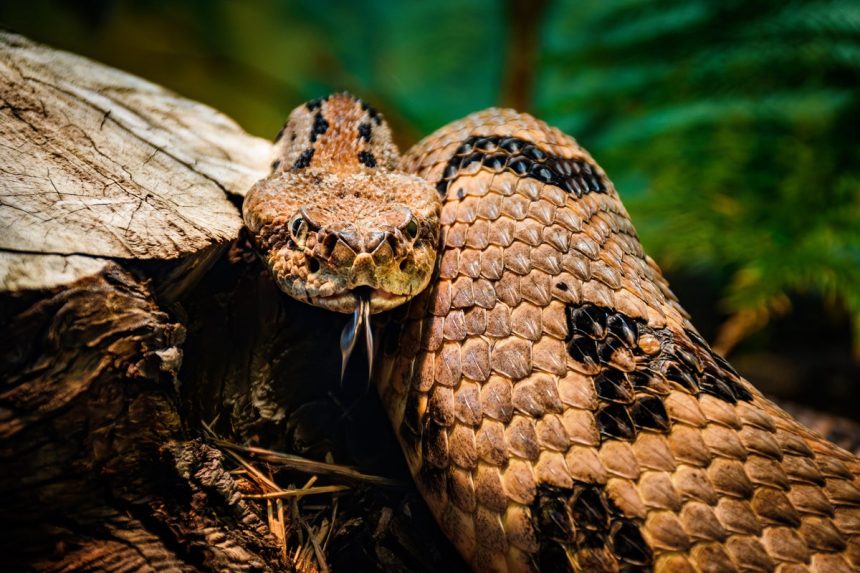A hiker who died of a snake bite in a scenic state park in Tennessee made one fatal mistake: he reportedly picked up the venomous reptile.
The man, who has not been identified, was just half a mile down a trailhead at Savage Gulf State Park when first responders arrived at about 12.30 p.m. last Friday, according to the Grundy County Emergency Management Agency.
After life-saving efforts administered by rescue workers, the man was transferred to a local hospital, where he succumbed to his injuries.
A representative for Grundy County EMA said the hiker was likely bitten by a timber rattlesnake, a highly venomous species found in the eastern U.S.
Witnesses who spoke to first responders said they saw the hiker pick up the snake, which bit him on the hand, Matthew Griffith of the Grundy County EMA told ABC News Channel 9.
The hiker was found just half a mile down a trailhead at the sprawling Savage Gulf State Park, officials said (Getty/iStock)
The man was believed to have died of an allergic reaction, though the full cause of death has yet to be released. It was not immediately clear why the victim picked up the snake.
“The family of the individual will be in our thoughts and prayers,” Griffith said. “As always, it’s strongly recommended to have some kind of first aid supplies while enjoying outdoor recreational activities and be mindful of wildlife and the dangers that some wildlife may pose.”
Griffith urged those who encounter any snake to remain calm and not attempt to handle it.
The Grundy County EMA website describes timber rattlesnakes as the “largest, and the most dangerous, of the four venomous snakes in Tennessee.”
They can be up to 5ft long with a large, distinctive triangular head, vertical pupils, and a characteristic rattle at the end of their tail.
In most cases, however, rattlesnake bites are not fatal. Less than one in 600 bites results in death, according to the U.S. Forest Service.
Bites from timber rattlesnakes are rare, according to the Smithsonian’s National Zoo and Conservation Biology Institute. The species is considered more docile than other members of its reptilian family.
Timber rattlesnakes typically prey on small rodents and often remain motionless if encountered in the wild.









